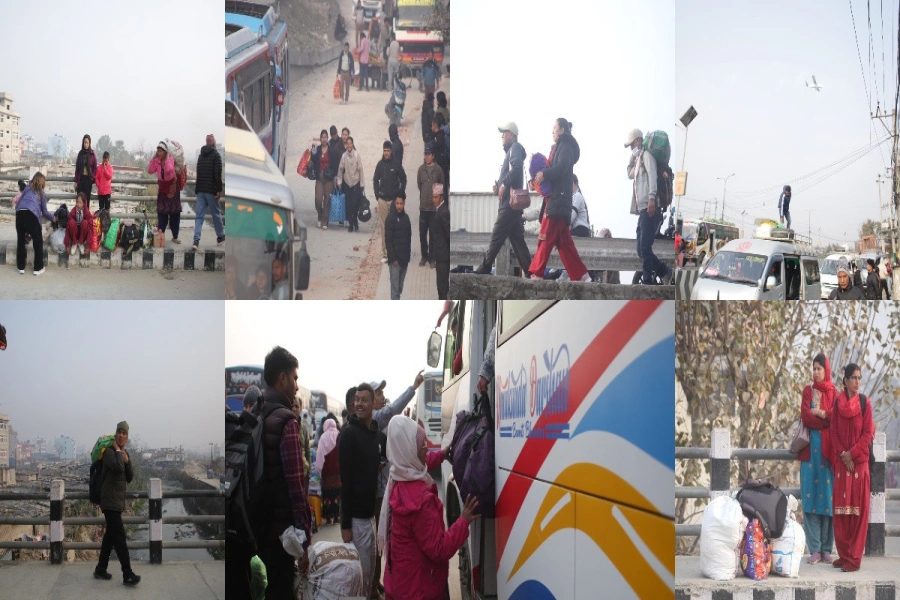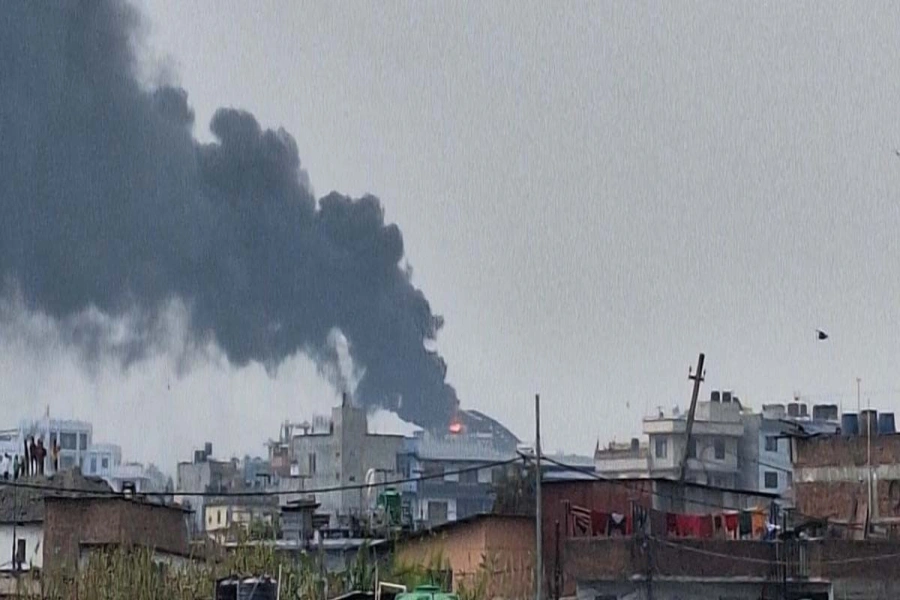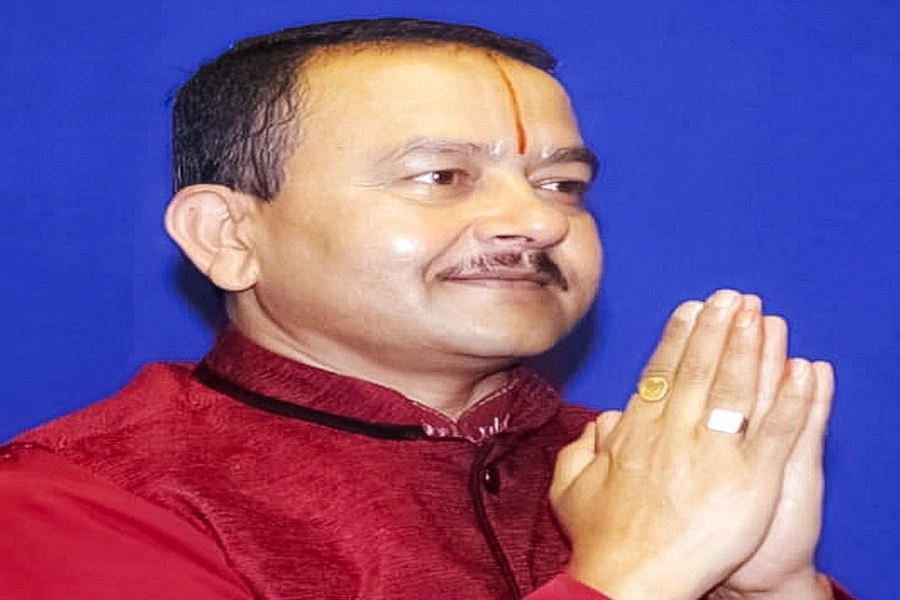It is necessary to create a standard regarding projects of national pride. A strategy should be brought out with a clear program regarding what kind of projects should be called projects of national pride, what kind of priority and facilities such projects should get and how these projects should be completed on time.
"The government is a great condition through which everyone tries to live at the expense of others." – Bastiat
Our government is democratic, so it is the servant of the will of the people. With historic political changes and stability in the country, an unprecedented opportunity for economic prosperity has come. The Nepalis want that this opportunity for development should not be missed. Now the next Prime Minister will be appointed as the 40th Prime Minister of Nepal. Most importantly, the aspirations of the people must be addressed for rapid economic progress. For this, the country should now focus on taking our economy to the next level.
Although it will be difficult to fulfill some big promises, the recognition of political parties going to the public with an economic agenda means that the new government must take big steps in industry, infrastructure and energy. Nepal's development should never be against one or the other neighbor. Both are indispensable for our overall progress. Economic diplomacy should prioritize trivial issues when dealing with our two giant neighbors. Nepal must focus on innovative ways to tap into the vast market on both sides of its borders. It can only be hoped that the new government will show the necessary discipline, maturity and honesty to start the long road to prosperity.
Along with the establishment of a stable government, there is a need to give priority to good governance and identify areas that can be relatively good or profitable and make extensive investments in those areas. It is necessary to identify and invest in projects related to the upstream and downstream. In the forefront of this are plans and projects of physical infrastructure. It is necessary to keep large and small hydropower projects in the second place.
Expectations a heavy burden

Another area of comparative advantage for Nepal is tourism. Extensive investment in infrastructure is very necessary for its promotion. Experts say that due to the geographical features of Nepal, the agricultural sector is beneficial for us. On the other hand, for the creation of savings, it is very necessary to have the availability of banks and financial institutions even in remote areas of the country. Due to the long transition period in the country, it could not go on the path of development and prosperity. Uncontrolled migration, destruction of forests, haphazard urbanization, lack of road network and transportation system, lack of other infrastructure, decline in industry and entrepreneurship, unemployment, migration of youth and lack of good governance are creating more challenges for development.
Due to the lack of proper use of high technology, there has been a decline in productivity. Due to the high cost of Nepali products, there is a situation where they cannot compete abroad. Due to the high interest rate of the banks, the cost of capital has increased tremendously, the investment of the banks in the consumer goods rather than the productive industry has been encouraged.
Due to the lack of economic governance, honest industrial businesses have become weak, and there is still an environment where economic crimes and corruption flourish due to slowness in work and a large increase in irresponsible trends. Along with the implementation of the Constitution of Nepal, the general public has given their consent to support the new government and create a road map for rapid prosperity through the recently held elections at the central, provincial and local levels. There has been a revolutionary change in the political structure, but the private sector has been forced to pay the price due to the overshadowing of economic agendas.
It is necessary to create a standard regarding projects of national pride. A strategy should be brought out with a clear program regarding what kind of projects should be called projects of national pride, what kind of priority and facilities such projects should get and how these projects should be completed on time. It is necessary to invest 12 percent of the GDP in the development, construction and protection of infrastructure. The Public Private Partnership Act needs to be enacted effectively and efficiently.
An appropriate policy should be made to attract domestic and foreign investors to implement large hydropower projects. International treaties, agreements should be made for the export of the electricity that is surplus after internal consumption. In addition, the infrastructure of the international transmission line should be built. A suitable environment should be created to speed up the completion of the currently under-construction projects such as Upper Tamakosi, Arun 3rd, Upper Karnali, Upper Seti etc. To encourage large reservoir-based power projects, there should be different rates for the rainy season, dry season, heavy load time and normal load time or according to the demand of electricity. A flexible power purchase agreement should be made.
Tourism is an important link in drawing the economic roadmap of Nepal. The natural heritage of Nepal and the sports and tourism that are being developed here have shown a glimpse of this. Nepal will be important and helpful for the development of tourism.
Farmers do not get help and subsidy from the state. There is fragmentation of arable land, lack of irrigation and unavailability of fertilizer. Due to the lack of a legal system, contract farming etc, commercialization of agriculture and making this sector competitive has not been possible. Despite the implementation of various long-term policies for the promotion of the agricultural sector in Nepal, the expected target has not been achieved. Therefore, in order to achieve the objectives reflected in such long-term strategies, it is necessary to have a proper budget along with the right programs.
Nepali farmers need to be assured of easy availability of chemical fertilizers and advanced varieties of seeds during the seasons. Investment in agriculture should be made easy and accessible. Four irrigation programs (Sikta Irrigation Scheme, Babai Irrigation Scheme, Rani Jamara Kulariya Irrigation Scheme and Bheri Babai Diversion Scheme) should be completed without delay to meet the targeted growth rate of agriculture.
A competitive environment should be created for social transformation and economic development of the provinces. Each province must implement attractive and competitive investment policies under the Umbrella Act and compete positively to make the living standards of its citizens higher than those of other provinces. It is appropriate for the central government to take the policy of giving special encouragement to the province which gets the best results. In order to encourage private sector investment, to improve laws, regulations and procedures, by simplifying the process of registering and operating industrial businesses, and in order to attract foreign investment, there should be an arrangement for automatic approval of investments that have reached the process.
In order to get other services received from the state in a fast and efficient manner, necessary reforms should be made in the Industrial Enterprises Act, Foreign Investment Act and Regulations. There should be arrangements for registration of industry and business at the provincial and local levels within one day.
Political scientists say that the main challenge that the new government will face at the beginning is the fear of political instability and the fact that the government may collapse any time.
According to the current constitution, the formation of a majority government by a single party is very difficult, if not impossible. So as expected, we are again going to have a coalition government. But in Nepal, the tradition of coalition governments is yet to get maturity. As soon as we are not satisfied with small things, the government could be overthrown or there could be instability. However, the Constitution of Nepal provides that a no-confidence motion against the Prime Minister cannot be brought for two years.
To be concluded…






-1200x560-1772467693.webp)































